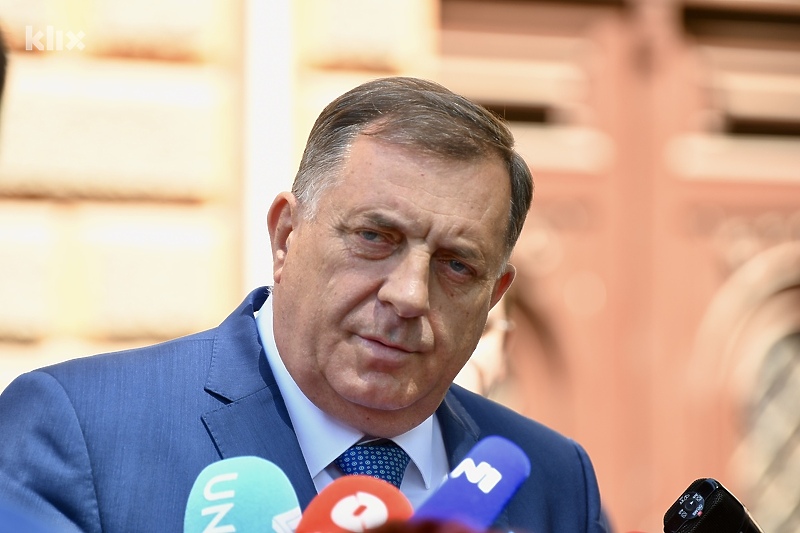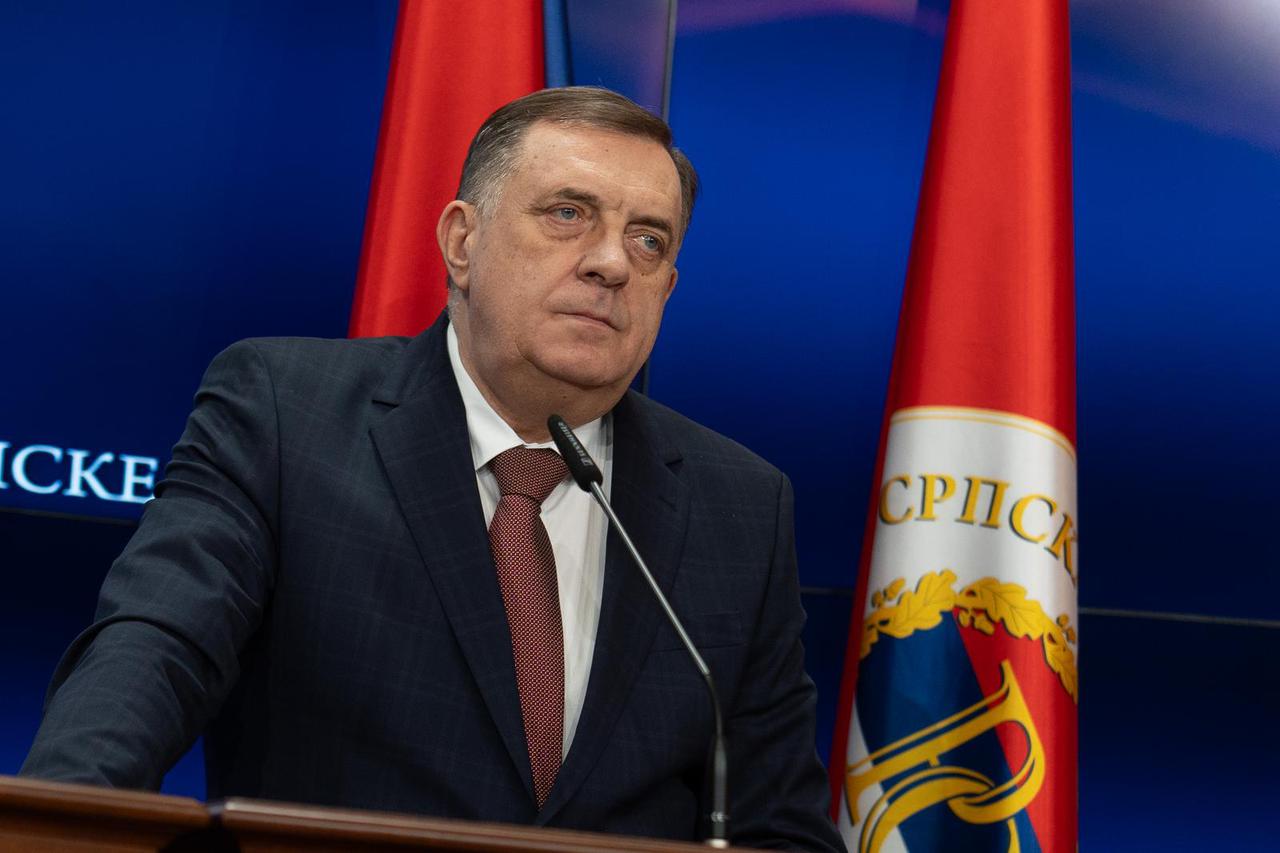“It is both justified and appropriate that here in Dayton itself, we reiterate that the Dayton Agreement never gave any unelected foreign bureaucrat bearing the title of High Representative the right to impose or amend our laws, suspend the constitutions of the entities, instrumentalize the legal system to silence and remove our democratically elected leaders, or punish our political parties,” stated Željka Cvijanović, Serb member and Chairwoman of the Presidency of Bosnia and Herzegovina, at the conference “Renewed Focus on Peace and Prosperity in the Balkans” hosted by U.S. Congressman Michael Turner.
The conference was held at the National Museum of the U.S. Air Force in Dayton, Ohio.
Below is the full speech by Željka Cvijanović:
Mr. Chairman, esteemed members of the NATO Parliamentary Assembly, honored heads of state and government, distinguished guests,
With deep respect—and a sense of responsibility—I address you here in Dayton, the city where our history was changed.
Thirty years ago, the Dayton Peace Agreement ended a devastating war and established a constitutional framework for Bosnia and Herzegovina that reflected the realities of our society. It granted each of the three constituent peoples and the two entities the right to self-govern within a single state.
Dayton did not erase our differences—it provided organization. It did not impose unity—it provided structure.
However, today that balance is slowly being dismantled—not through democratic mandate, but by the actions of unelected international actors who view Dayton not as a binding agreement, but as a living document to be stretched, interpreted, and rewritten—without the consent of domestic stakeholders.
Indeed, Bosnia and Herzegovina has been treated as a radical state-building experiment over the past 30 years. That experimental approach has driven the country from one crisis to another. Almost all foreign interventions have been carried out without negotiations, without parliamentary procedure, and without constitutional legitimacy.
It is therefore justified and appropriate that here in Dayton, we again stress that the Dayton Agreement never granted any unelected foreign bureaucrat bearing the title of High Representative the right to impose or amend our laws, suspend entity constitutions, or manipulate the judicial system to silence or remove our democratically elected leaders—such as the President of Republika Srpska, Milorad Dodik—or to punish our political parties.
All of this has been done by Christian Schmidt, just as it was done by many of his predecessors over the past three decades.
What is most alarming is the misuse of the judiciary, where legitimate political dissent is met with criminal charges, indictments, and threats of arrest. I listened carefully to what President Trump, Vice President Vance, Secretary Rubio, and just two days ago Deputy Secretary of State Landau had to say about this. It is clear that the state-building model being promoted in Bosnia and Herzegovina for three decades is contrary to the policy of President Trump’s new administration.
I believe his administration will help us save democracy in Bosnia and Herzegovina—a democracy whose future will not be written by decrees and foreign dictates, but by law and our Constitution.
I come from Republika Srpska, and I want to make this clear: we are not undermining the Dayton Agreement—we are defending it. But we do not want those who do not vote in our elections, who do not speak our language, and who bear no consequences for their imposed decisions to dictate how we should operate and govern.
One example of our commitment is that November 21, the date the Dayton Agreement was initialed, is a public holiday in Republika Srpska—while in the other entity, it is an ordinary working day.
We want to restore Dayton—to return to the agreement as it was signed, not as it is reimagined today. That is why Republika Srpska calls for a return to the foundations.
We are ready to participate in a structured dialogue with all sides. If the agreement is to evolve, it must evolve legally—through amendments and with the consent of all parties.
We also believe in a strategic partnership with the United States, particularly regarding investments in the energy sector and the exploitation of critical minerals—on the basis of transparency and constitutionality.
In conclusion, I want to emphasize: peace was possible in 1995 because all sides were respected and heard. Peace in 2025 requires the same approach.
On this anniversary, let us renew what Dayton truly means: consensus, constitutionality, and cooperation among equals. Let us return to the foundations—so that the next thirty years may be better than the last thirty. Thank you.
Source: Glas Srpske









